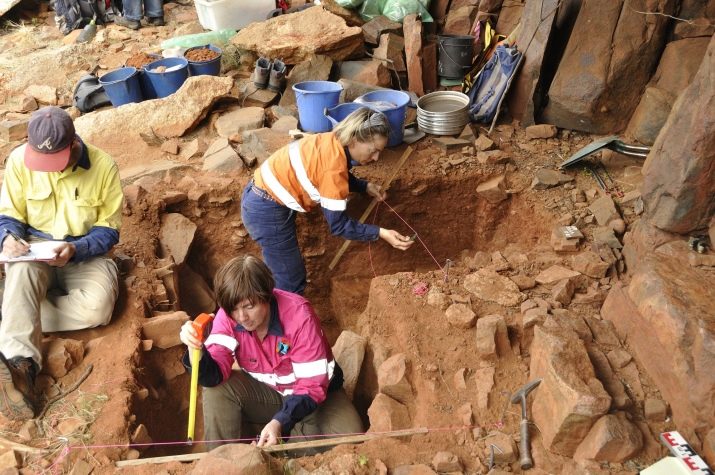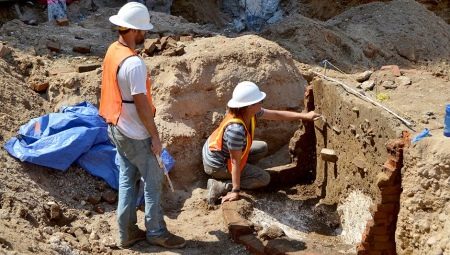The specialty of an archaeologist can be attributed to professions that are covered with a certain touch of mystery and even light mysticism. According to the majority of inhabitants, archaeologists are like treasure seekers, only for the former, the search for the oldest artifacts is a kind of art, while for the latter it becomes only a way of making money.
Archaeologists are useful to society, therefore, archeology is assigned to those categories of knowledge that absolutely do not accept random personalities - that’s why specialists planning to work as archaeologists should carefully familiarize themselves with all the features of this profession and only then make a decision about whether it suits them or no.
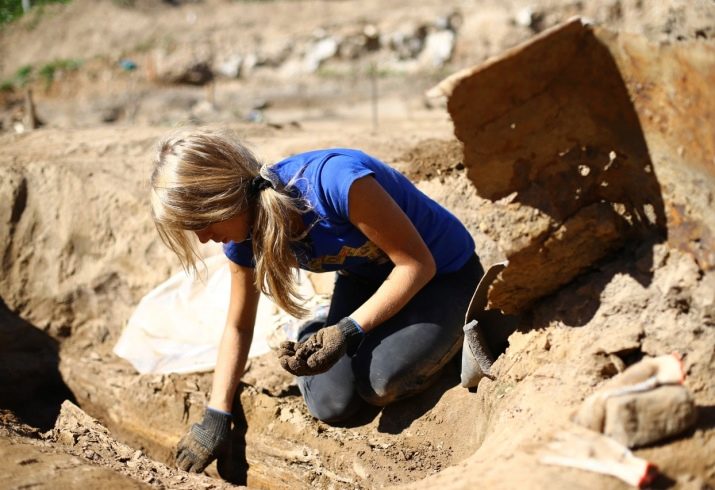
Description and History
The roots of archeology date back to the time of Ancient Rome - numerous artifacts discovered during excavations during that period became confirmation of this. A in the Renaissance, trained people everywhere searched for ancient sculptures. Nevertheless, archeology as a separate scientific field arose much later.
So, in Russia, "diggers of the earth", looking for interesting facts and evidence of human life in ancient times, appeared at the end of the XVII century. And already in the middle of the XIX century. archeology has gained official scientific status. This coincided with the period of the creation of scientific communities, the widespread opening of museums and the filling of their exhibits - this is exactly what the very first attempts to know the history hidden from people under the thickness of the earth looked like.
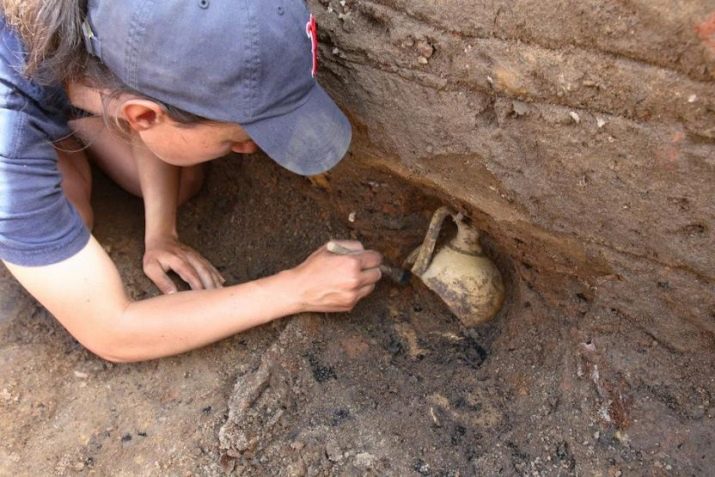
Nowadays there are no boundaries for a competent specialist. With their expedition, archaeologists can always go to the most remote corners of the planet. And thanks to the advent of new devices, perfect research methods and universal computerization, a huge breakthrough was made in the laboratory direction of the study of artifacts.
It's obvious that the main object of archeology are artifacts. They are objects created by people or crafted by them. In science, they are called material sources, they include tools, weapons, decor items, household utensils, as well as the remains of buildings and coals of ancient bonfires - all these are evidence indicating the features of human development.
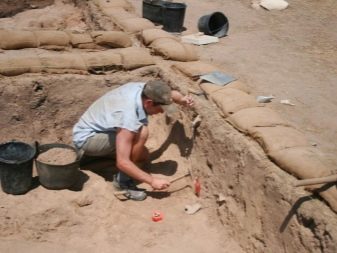
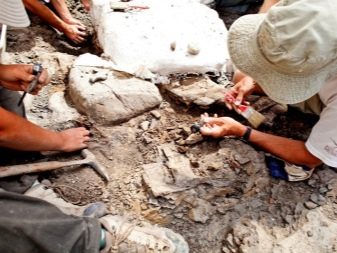
Material sources are laconic. There is no mention of events in them, moreover, most of them were created long before the birth of the first written language. The fragment of the pot found during excavations by itself can tell little to people, therefore, such artifacts cannot be considered in isolation from the studied place, depth, environment, and also objects found nearby. In the course of his work, the archaeologist searches for evidence of past eras, after which he carefully studies them in a research laboratory, classifies and, if necessary, restores.
Archeology actively applies the techniques of related disciplines - this humanitarian direction (anthropology and ethnography), as well as science subjects (chemistry, geography, physics, biology, soil science or geography).
We give a simple example. In order to determine the time of use of an object, scientists need to take into account in which layer of the earth it was located, since each of them corresponds to a certain time era.
For this, comparative-typological, radiocarbon, and also stratigraphic and many other types of research are used.
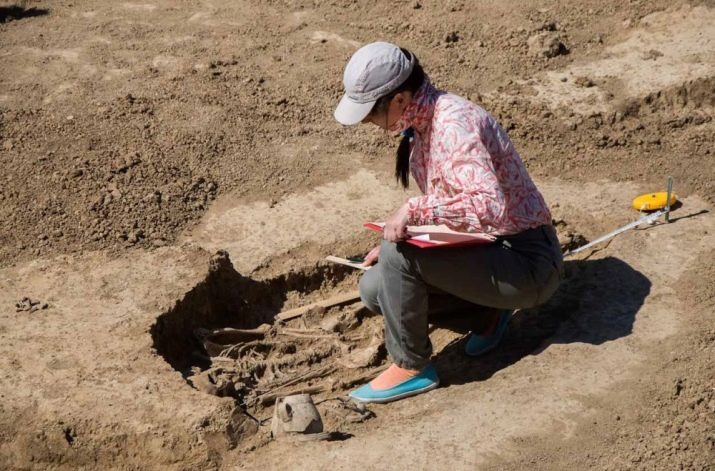
An archaeologist in his work does not have the right to rely on fantasies, each conclusion he made must have an evidence base.
In most cases, archaeologists specialize in certain historical time periods or in individual regions, for example, a scientist has every chance of becoming a highly professional expert on the Paleolithic period in Asia if he has studied the sites of ancient people found there for many years.
Depending on the search methods, the work of archaeologists can be divided into three groups:
- field - involves the search for artifacts by conducting excavations on land;
- underwater - includes work under water;
- experimental - Specialists in this area are engaged in the reconstruction of objects of the past.
In their professional activities, archaeologists use a variety of tools. So, during a field excavation, you need a shovel and pickaxe, a syringe and a brush are used to clean the artifacts found.
During the excavation, specialists will need a ground penetrating radar, and archaeologists use photographic equipment to document the findings.
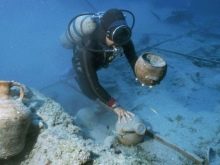
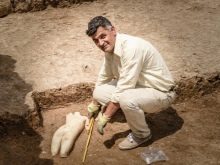
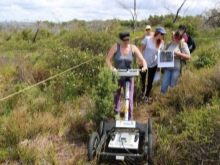
Advantages and disadvantages
The obvious advantage of workers in the field of archeology is the ability to often travel for a long time in the circle of like-minded people. In addition, representatives of this profession spend the lion's share of their working time in the natural environment in the fresh air - and this can also be considered an advantage of the specialty.
No other advantages of this specialty could be determined. It is possible that just such an unconvincing list of advantages has become the reason that in our days archeology as a study area is rapidly losing its popularity among applicants.
At the same time, the disadvantages of the profession of an archaeologist are much greater. We list the most significant.
- From the side it may seem that archeology is an adventure, hiking and landmark discoveries. but in practice it is hard, physically exhausting work and monotonous workwhich even the strongest and most hardy men often do not cope with.
- Low salaries, and sometimes even a complete lack of earnings. This is due to weak public funding for the cost of any research artifacts.
- Many months spent under Spartan conditions, lead to the fact that archaeologists are often forced to eat what nature offers and sleep on bare ground in the open.
- Not every excavation ends with great discoveries.. It happens that significant findings are made by someone else, and in this case, the specialist has a feeling that part of his life was spent in vain.
- And of course long archaeological expeditions hinder the creation of a family and building a fulfilling personal life.
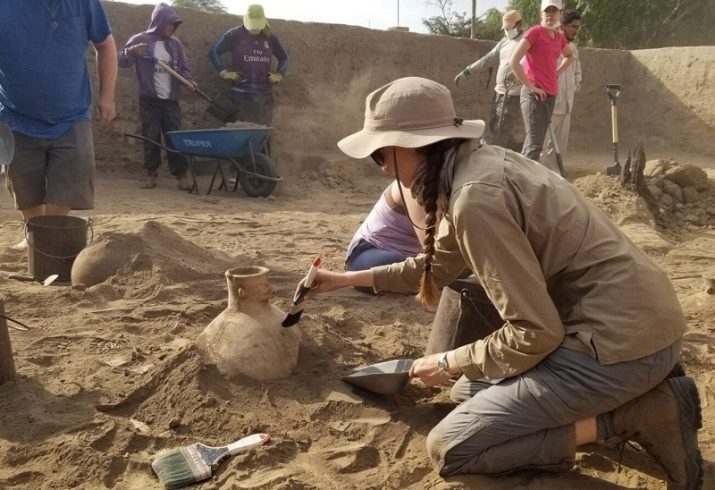
What is the difference from a paleontologist?
Understand the difference between archeology and paleontologists is not easy - these areas are often confused. And in fact, there are similarities between these disciplines - both of them are aimed at studying life in the past. But there are differences, and to understand them, first you need to clarify what paleontologists do.
So, a paleontologist is a scientist who studies the forms of life that existed in prehistoric times, presented in the form of fossils of animals, plants and some other organisms.
Thus, the paleontologist studies fossils - this allows him to find information about those life forms that existed on the earth many thousands and even millions of years ago.
The main differences between archaeologists and paleontologists can be identified by certain criteria.
- Field of work. A paleontologist studies the science of paleontology, and an archeologist studies archeology.
- Thing. A paleontologist is studying life on earth from a biological point. An archaeologist is looking for evidence of everyday life and the cultural development of man.
- An object. Paleontologists obtain information by studying the features of terrestrial fossils. Archaeologists study artifacts.
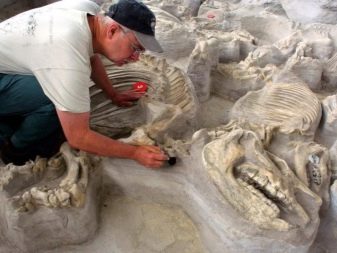
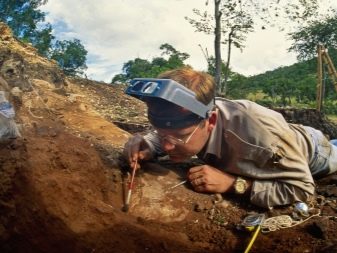
Responsibilities
We will examine in more detail the duties of an archaeologist. First of all, his activity is connected with participation in expeditions. In the first stage of this the specialist will have to specify the areas where he plans to excavate and obtain permission for their implementation. After that, he proceeds to study the history of the area, during which he seeks to collect as much data as possible.
Next, the practical stage begins, that is, work in the field. It boils down to the fact that archaeologists literally “extract” artifacts from the earth. Each find is taken as carefully as possible and packed into special blocks, boxes or packages, after which it is necessary to number, carry out an inventory, enter the data into special catalogs and send it to the laboratory for further research.
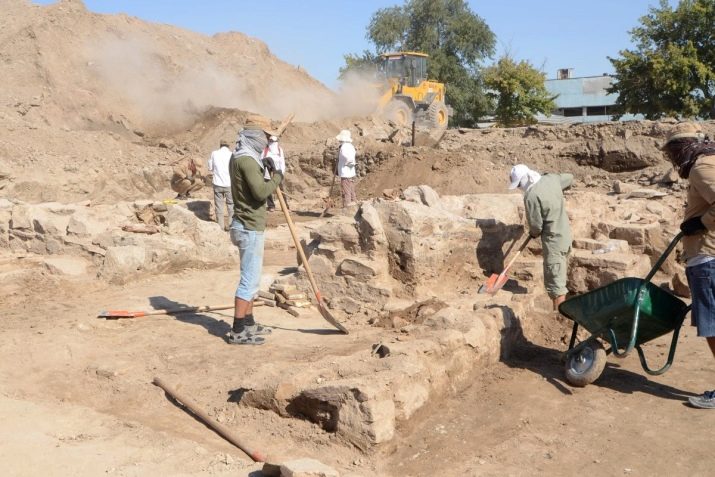
The resulting artifacts are photographed and covered with a special protective compound - if this is not done, then it is possible that the find will simply collapse under the influence of open air and light.
Today, archaeologists are working with the most modern computer programs and technologies that allow you to do 3D-reconstruction of the area based on ancient maps or to recreate voluminous virtual models of objects found. Not so long ago, even a whole direction appeared - virtual archeology, it is based on the use of modern modeling methods in three-dimensional graphics. The duration of the study varies from several hours to tens of years.
It happens that the condition of the found artifacts is so unsatisfactory that they crumble even with the most careful handling - this can significantly complicate and prolong the laboratory work of the archaeologist.
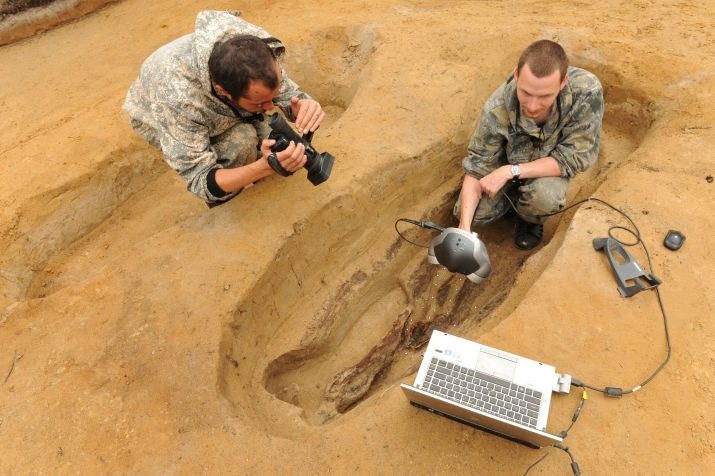
Knowledge and skills
An archaeologist is primarily a representative of a serious scientific field, which is why his work, in addition to good physical preparation and excellent health, requires a wide outlook and knowledge in various fields.
It is very important that the archaeologist knows the history well - he must perfectly understand the features of the era under study.
This specialist will not be able to do without confident knowledge in such areas as:
- anthropology;
- paleography;
- heraldry;
- ethnography;
- textology;
- numismatics;
- restoration.
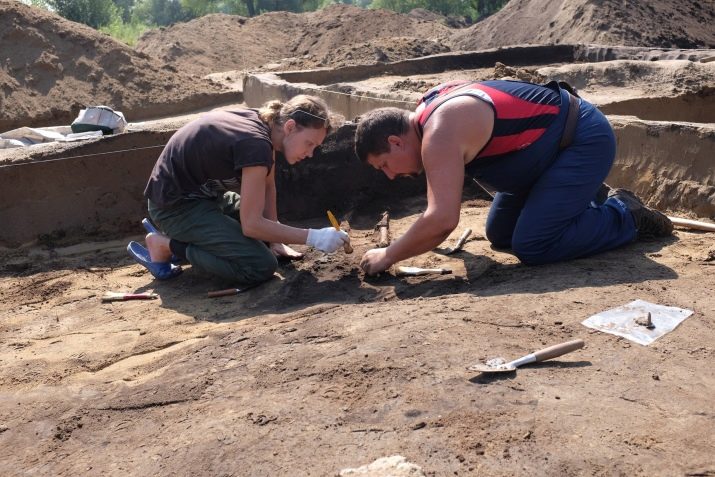
In the course of laboratory research, information from chemistry and physics will help archaeologists.
It should be noted that the work of an archaeologist is only possible for true enthusiasts in their field, for whom the study of antiquity and excavations become not one of the labor episodes of life, but a real vocation, a commandment from the heart.
A good archaeologist must have such personal qualities as:
- passion for history;
- predisposition to an ascetic lifestyle;
- tendency to monotonous work;
- analytical type of thinking;
- psychological stability;
- physical stamina
- good health.
In addition, archaeologists often have to master new sciences and areas of knowledge, so a true fan of archaeological affairs is always inclined to thirst for new knowledge and improve skills, he should be motivated to get additional self-education.
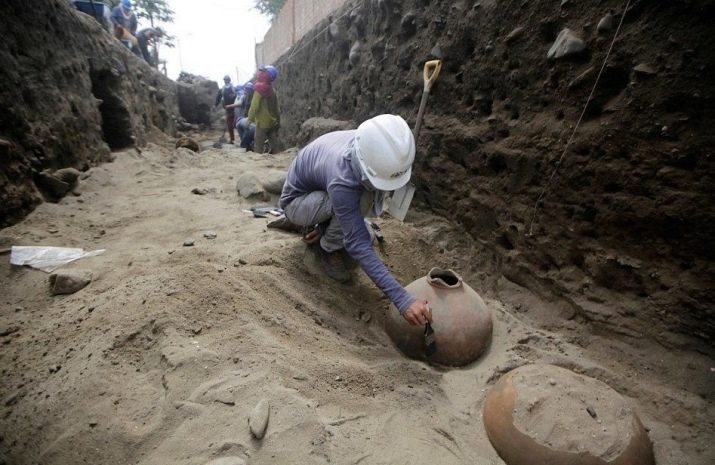
Training
In order to work as an archaeologist, you must definitely get a higher education. Learning will not be easy, the main emphasis in the curriculum, regardless of the university, is made on the study of such a subject as history. In addition, students are required to learn the basics of excavation, as well as the rules for handling found artifacts. At the end of the program, they will have to undergo practice at the excavations, defend a scientific project and pass theoretical exams.
In Russia, there are only two specialized universities graduating qualified archaeologists - this is the Institute of Archeology of the Russian Academy of Sciences, as well as the Moscow Archaeological Institute.
Also, those who wish to become archaeologists can go to any other educational institution, where there is a historical faculty with a department of paleontology and archeology.
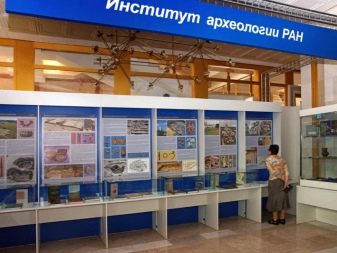
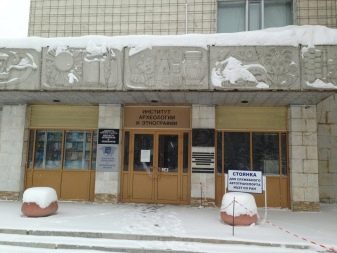
Workplace and salary
Most often, university graduates who have mastered the specialty of an archaeologist get an opportunity to find a job in a research institute, and get a teaching position in one of the educational institutions. An archaeologist can devote himself to scientific activity at any time. - make interesting discoveries and defend their design work in order to get another academic title.
Archaeologists are also in demand in museums, where they are responsible for the preservation of artifacts, as well as organizing excursions and preparing exhibitions.
Young specialists often take the position of laboratory assistants, and the most ambitious employees have good chances to build a career to the head of the department or even the head of a scientific institution.
The average salary of an archaeologist is 45-50 thousand rubles, but in fact it has a large spread. Judging by the data collected on job sites, the minimum wage is 15 thousand rubles, and as much as possible these specialists earn 150 thousand rubles.
The amount paid to archaeologists directly depends on the place of work, as well as the availability of professional experience and labor skills.
